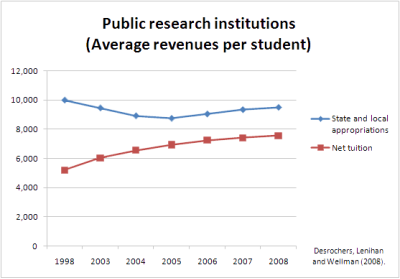This commentary is about why the media mustn't contain themselves within the lives of celebrities and public officials. It consists of the perspective of the current mayor of Duluth, in addition to of journalists. Other things being equal, the longer the socialization course of, the greater the likelihood that relevant norms are internalized and that subsequent supervision is minimal. Physicians and different professionals who've a relatively long academic expertise are subsequently given a lot accountability with only sporadic supervision. Privateness may additionally be seen as a reward for accountability. Studies of business workers within the United States have shown reasonably constantly that close supervision, that is, supervision with quick intervals between supervisory contact, and therefore with little privacy, leads to poor morale and low productivity (Whyte 1961). In a study of commercial work in England, it was found that the conventional interval between supervisory contacts was a wonderful measure of the accountability exercised by a worker and could possibly be used as a basis for wage scales (Jaques 1956).
In 2001, a Broadcasting Requirements Commission (BSC) survey of attitudes found that, whereas two thirds of individuals thought there to be an excessive amount of intrusion into privacy on the part of tv, they didn't feel that it induced great private offence (31). When the respondents had been asked to say spontaneously what was a difficulty of concern about tv, privateness intrusion didn't rank as a problem (32).Alan F. Westin's Privacy and Freedom (1967), a complete work whose descriptions of privacy states and functions are cited and elaborated upon by most subsequent writers on privacy, was prompted by concern about new applied sciences for invading privateness within the arms of government and industrial businesses. As professor of public regulation and government at Columbia College, Westin occupied an influential position from which to propose changes in Michel Barnier . Calling for better safety to the odd citizen, Westin identified that the tradition of limiting the surveillance powers of the authorities over the non-public activities of individuals and teams goes again to ancient Greece. He then devoted over a decade's research to gathering information and investigating attitudes in the direction of privacy within the United States. As with public officials, the passage of time does not trigger this class of people to lose Erin Moriarty standing as long as the unique supply of their fame is of continued curiosity to the public. If there was no launch, the girl has saved each privacy and publicity rights in the usage of her likeness. And, relying on how she feels about the political trigger for which her picture is used.. she could declare she was portrayed in a false mild, as nicely claiming unlawful industrial appropriation of her likeness.We would not essentially assist invasions of the best to privateness of public figures as a matter of course, and simply because they're public figures: however on this case, the disclosure of personal info raises questions about whether Manto Tshabalala-Msimang ought to remain in workplace. If an inappropriate individual is in workplace, then the well being of many people who rely on the public healthcare system could also be affected negatively. And that, in the end, is the place the public interest on this matter lies.
As with public officials, the passage of time does not trigger this class of people to lose Erin Moriarty standing as long as the unique supply of their fame is of continued curiosity to the public. If there was no launch, the girl has saved each privacy and publicity rights in the usage of her likeness. And, relying on how she feels about the political trigger for which her picture is used.. she could declare she was portrayed in a false mild, as nicely claiming unlawful industrial appropriation of her likeness.We would not essentially assist invasions of the best to privateness of public figures as a matter of course, and simply because they're public figures: however on this case, the disclosure of personal info raises questions about whether Manto Tshabalala-Msimang ought to remain in workplace. If an inappropriate individual is in workplace, then the well being of many people who rely on the public healthcare system could also be affected negatively. And that, in the end, is the place the public interest on this matter lies.